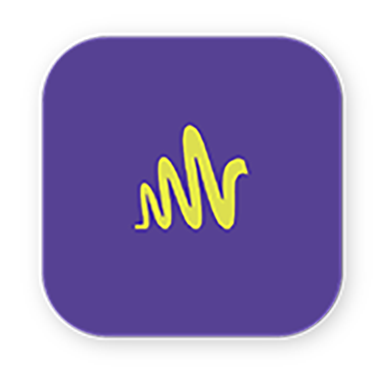Julie Ford 25:40
Yeah, always a good question to ask. It does remind me of when social media started to become popular for B2B. And how you've now got social media out there, you've got employees on social media, publishing things that you kind of lose control of as an employer. And very quickly, there were social media policies. So, you can and can't post this. Or don't post pictures of yourself on Saturday night at the club, you know, some things that seem common sense, but there are policies for this. Do you see that as being something that internal communication should take the lead on?
Adrian Cropley 26:23
Absolutely 100%. Internal communications should take the lead in this one. I personally am going to be a little bit edgy here. We, as internal communication professionals missed the boat when it came to social media. I remember when social media first came about, and sadly, I can date myself, I remember when the internet first came about, and the similar conversations there. But I'm trying not to date myself too much. But the reality is, when social media came about, we were, in general, there was always some early adopters and pioneers that get out there and start understanding the technology, its implications, and therefore, one of the considerations from an ethical standpoint, but largely, we missed the boat.
And if you think about social media, and its negative impacts, not just the positive impacts it has had on society, where it's just become a broad fist on things like Twitter these days, and whatever else. And it's because people felt that because it's available, I can do and say anything, right. So, the filters went out but what we didn't put in place is things like decency codes, and the rights and wrongs with social media early. So, kind of the gate was open, the horse bolted with social media, I think we have to take a much more active role as internal communication professionals in starting to develop those policies, those guidelines, certainly from an educational point of view. But also, I think there has to be a governance point of view around this one as well, where we're starting to say what is right, what shouldn't be done within an organization?
I've seen government organizations straightaway actually go AI is banned from the organization. It's a risk, absolutely, it's a risk of information getting out into the public domain. However, what we've got to be able to do is say, hang on, we just can't go black and white, let Ban this and not have it, it's here. It's how do we work within a frame of having AI, its implications, but codes of conduct and how to utilize, when to utilize, what to check, all those things must come out as policies and procedures.
Julie Ford 29:06
Absolutely. Yeah. This is an opportunity for internal communications to shine and a leadership opportunity for internal comms. Like you said, the opportunity wasn't taken with social media, but here's a good opportunity for anyone who wants to take a big step and potentially elevate their careers by reading something like a policy on AI in the organization.
Adrian Cropley 29:33
Yeah, and it's really about looking at the role of internal communication, because content, content creation and distribution is going into the hands of the user, but that strategic advice, the strict strategy on what you are trying to achieve, has to come from the community, the internal communication professional and the roles like policy, the roles of governance of communication are all roles that really need to progress.
AI Technology and Remote Work: Enhancing IC and Collaboration
Julie Ford 30:08
Absolutely. So how do you see AI technology supporting remote work and distributed teams, especially in the context of internal communications and collaboration?
Adrian Cropley 30:19
Distributed teams have always been a challenge for internal communication. I know organizations that we've worked with, mining organizations, and so on where frontline employees are always going to be hard to reach. But I think AI can play a vital role in creating effective communication and collaboration. Things like virtual assistants, providing instant support, so at the time, that's convenient for those employees.
In location, we've got mobile technology, that's great. There's still jobs employees have, where they can't use their mobile devices in the workplace, and so on. But I think we've got this blurred lines, where if you can do things quickly, efficiently get the information you need that's tailored to you when you need it, I think AI will play a real vital role for those employees because it's acting with the time that they do get to interact with technology. I think facilitating some of those, those tasks that managers complete with remote teams, that we use the example of video before, I thought that was a good one where we're putting communication instantly in the hands of managers.
So, things like safety updates, and so on, when they've got a distributed team, they can do it on the spot and distribute without a whole series of actions they have today or editing processes or checking it off with the internal comms. We're putting the technology; the device is in the hands of managers that then can get it to teams in in kind of real time. And that's the revolutionary steps that we can see with those distributed teams.
Julie Ford 32:17
Yeah, getting the right information to people at the right time. Because with distributed teams, that's always the biggest challenge. If we can leverage AI to do that, that's absolutely a great opportunity for internal communications.
Adrian Cropley 32:34
It's a real challenge. But also where we've got the devices that can be used, when you've got a managers face, video that's coming across, as giving that update and looks confident and gives you the key messages that you need in a very snappy video, in fact, they're going to edit it on their phone, before they put it out there. They've got a lovely tool, that's going to make it in a very snappy update key points, and it's going to get to the employees, but they're seeing the face of the manager and that interaction.






.webp?width=140&height=140&name=Untitled%20design%20(2).webp)



.webp?width=480&name=email%20banner%20(5).webp)
.webp?width=480&name=email%20banner%20(4).webp)
